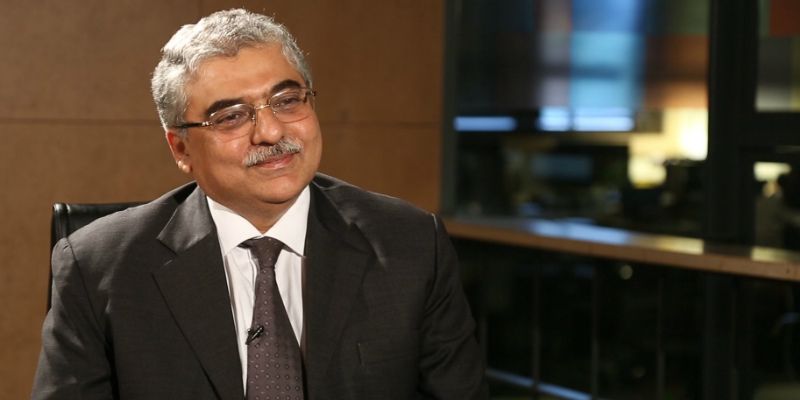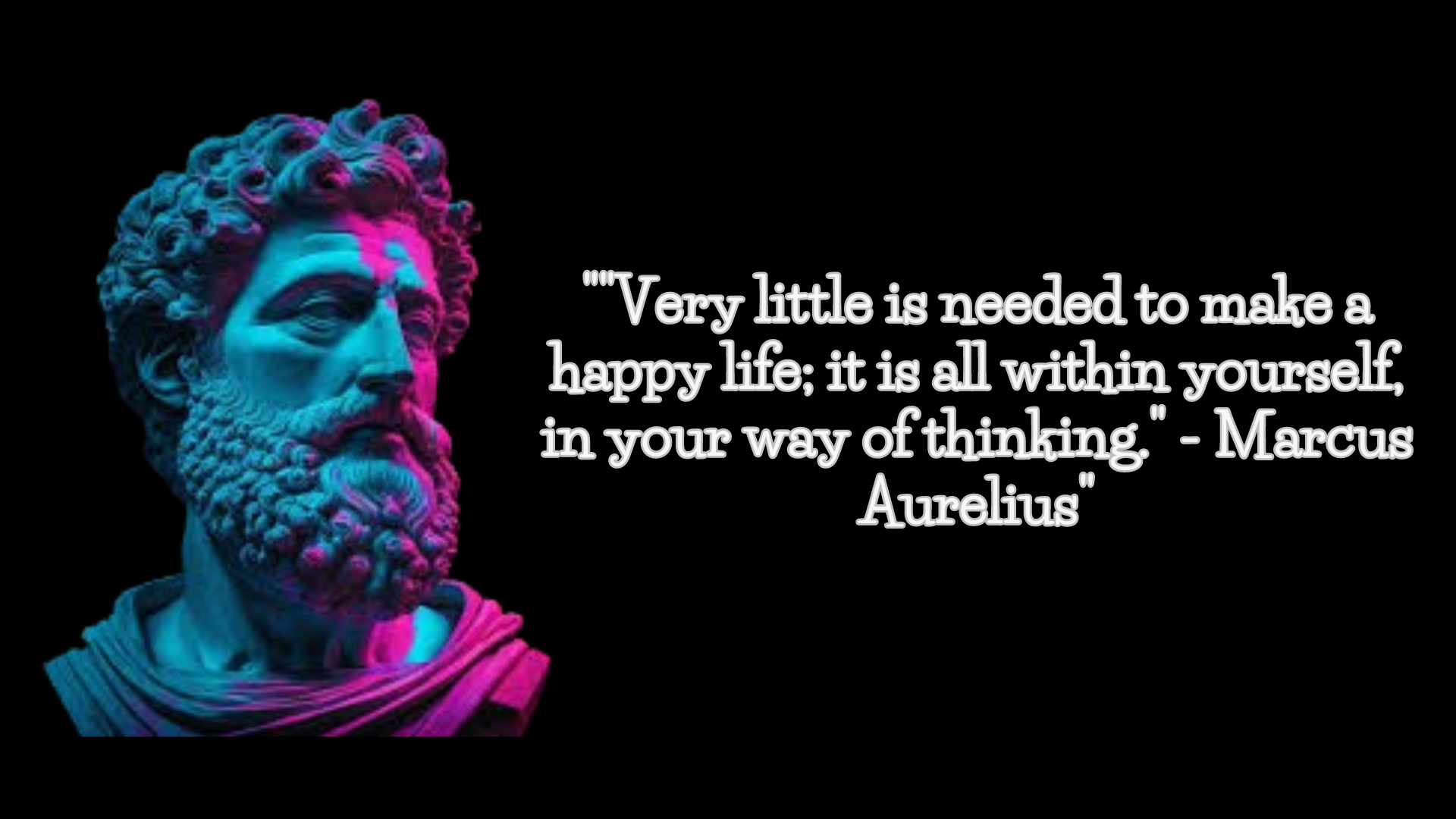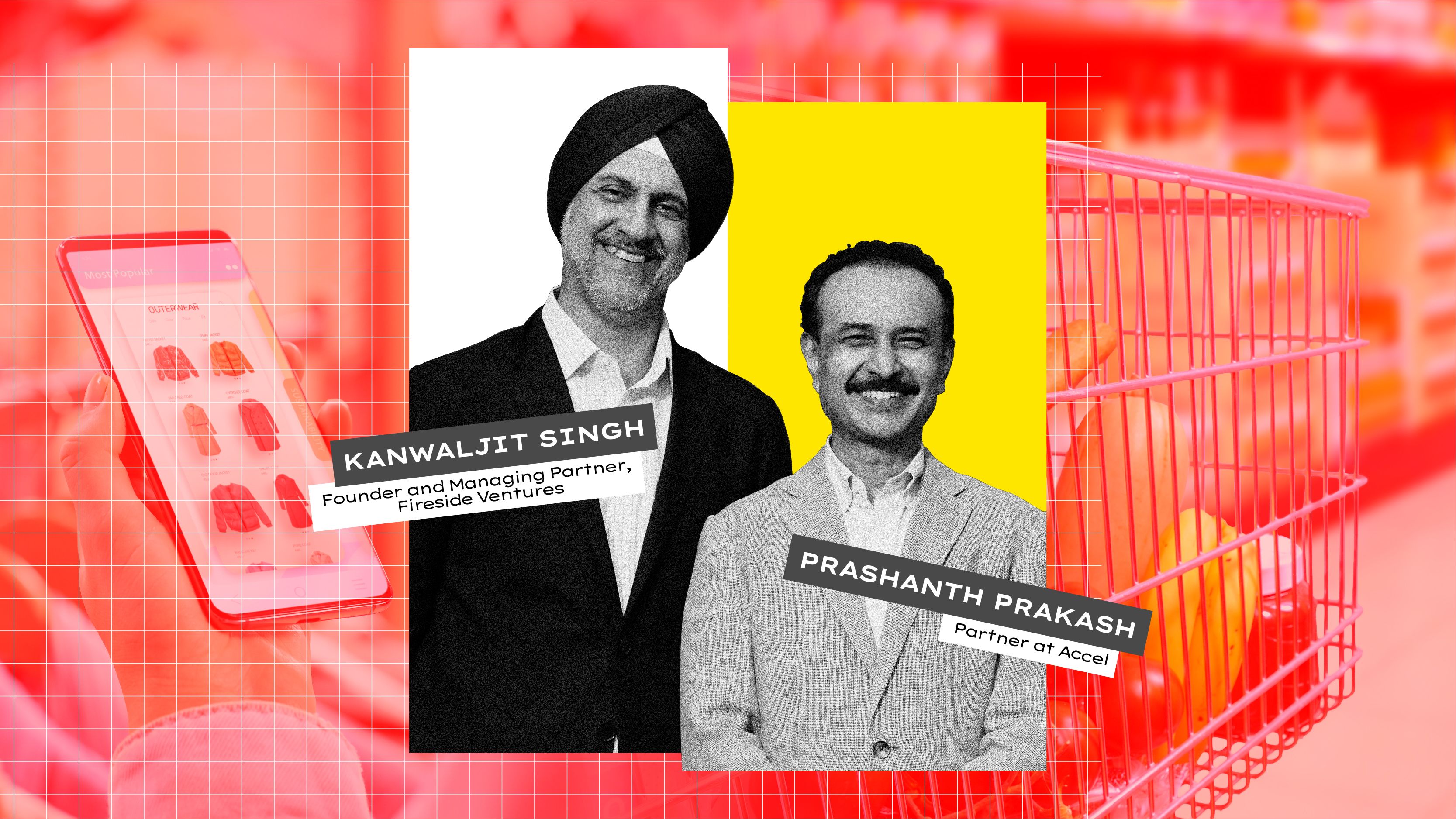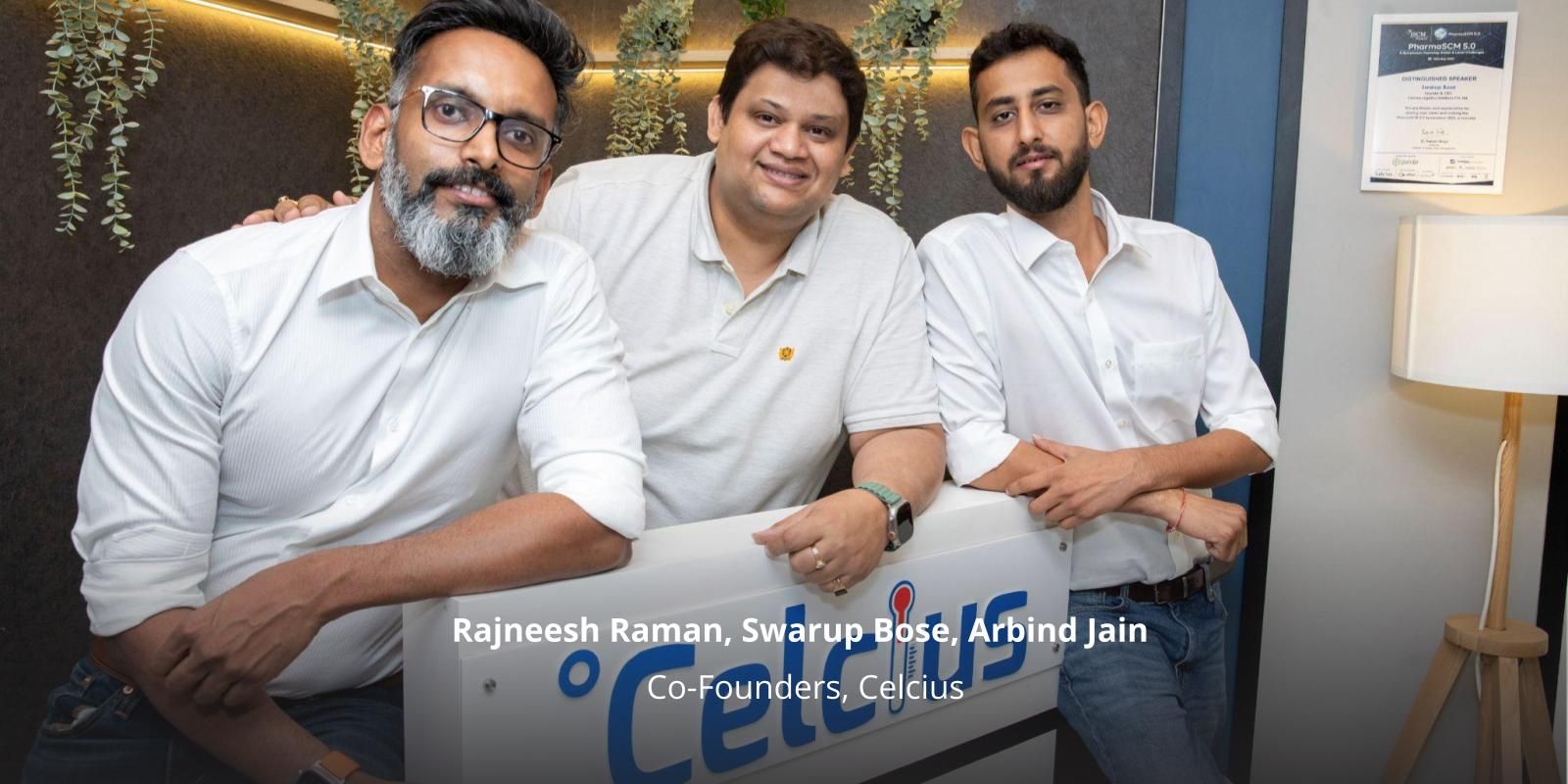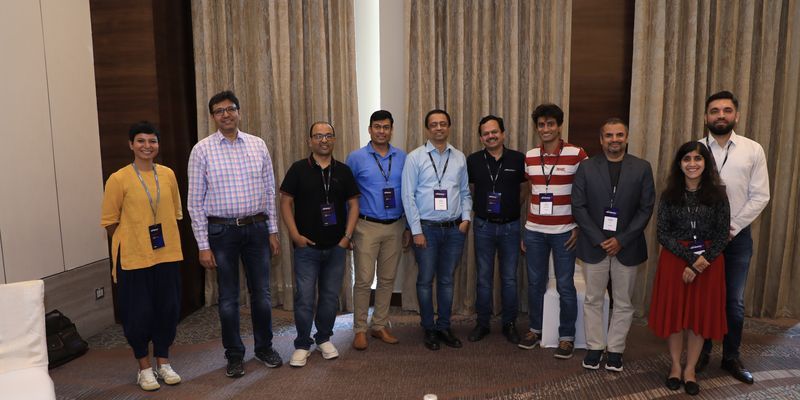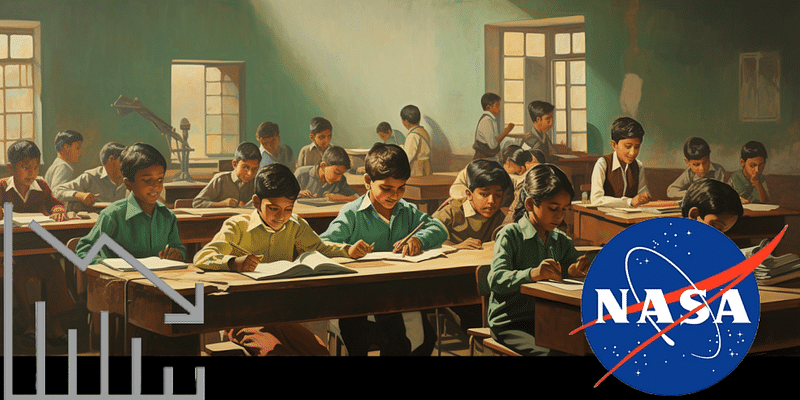30 years & 13 acquisitions later, why the game has just begun for Dentsu's Ashish Bhasin
”Once, Mad Men ruled advertising. They’ve now been eclipsed by Math Men—the engineers and data scientists whose province is machines, algorithms, pureed data, and artificial intelligence,” wrote Ken Aulette, author of the forthcoming book, Frenemies: The Epic Disruption of the Ad Business (and Everything Else), in the NewYorker recently. India has own set of believers in data and how it will impact spends on advertising. Ashish Bhasin, Chairman & CEO – South Asia, Dentsu Aegis Network (DAN), is the man who invested in building digital advertising when it was just a sliver in the pie chart of ad spends. Today, that investment has paid off handsomely.
When he joined Aegis, the company had 50-odd employees and was making losses. Today, thanks to a combination of organic and inorganic growth, it has metamorphosed into a profitable heavyweight with 3,500+ staff across a large number of agencies. It also dislodged and old rival to claim the #2 position among Indian ad companies just less than 10 years entering the country. DAN is the type of acquirer that entrepreneurs love to work for – many founders whose companies it acquired have stayed on and continue to thrive. I caught up with Ashish yesterday to explore this journey and his views on the future of advertising in India. Moreover, understand the M&A that he has been actively pursuing in India with over 13 acquisitions in the last couple of years.
Here are edited excerpts.
Shradha Sharma: Congratulations on completing 30 years in advertising!
Ashish Bhasin: That is right. June 1st, 1988 is when I started in advertising, so I’ve just finished 30 years.
SS: Wow, tell us what these 30 years mean to you.
AB: It means a lot, it is my whole working life. I literally joined advertising out of MBA school as a management trainee, and it has been a long journey. It is only my second job. For 20 years, I was with Lintas. About 10 years ago, I brought Aegis into India.
I started off as a client servicing person, and went on to handle the Unilever business -- several brands in that, in several countries, then ran the Lintas Madras office, which did very well. Then I then ran the media business for Lintas, called Initiative Media, and then integrative marketing businesses.
I brought Aegis into India and looked after South and South-East Asia, which later became the Dentsu Aegis Network. It has been an exciting journey.
SS: You’re one person in advertising who has taken on the mantle of digital because advertising in India is still very traditional, still very print and TV. But you single-handedly moved the industry to the digital space. How do you see that? What gets you excited about digital?
AB: It was a sensible business decision when we took it. We were very late in this market - our competitors had been here 90 to 100 years before us. WPP came in the 1920s through what was then Hindustan Thomson Associates.
Lintas, which is an IPG company, came in 1938. I was coming in 2008. I think it was in 2009 that one of our competitors did this report of how much money is going into which media.
They spoke about TV, they spoke about print, they spoke about outdoor, etc, and then they said, “But digital is only 4 percent”. That is when I realized that therein lies the opportunity because all my competitors were not even bothering about it.
It was quite clear to me, looking at the rest of the world, as well as looking at what was happening around (us) that digital was going to take off. That’s when we started our journey.
Today, roughly 17 percent to 18 percent of the market is digital, but my company gets almost 42 percent of its revenues from digital. Out of our 3,500+ people, about 1,650 are digital experts. We have eight digital agencies now. In our business, the advertising market has been growing around 8-10 percent, but digital has been growing at 25 percent. We are growing two-and-a-half to three times the market; it’s a great place to be in.
SS: Ashish, all the entrepreneurs would relate to the point you mentioned - that you saw digital as an opportunity in 2008 because you saw it earlier than most people in this space, did you have to encounter a lot of challenges? Was it hard taking that decision?
AB: Yes, it was, because I didn’t have much of a company here at that point in time, and then I was making investments well ahead of their time because it was such a tiny part of the market but there were disproportionate resources, money, efforts behind it.
But I was convinced. You had to be really missing a signal if you didn’t see that trend. I am not a big believer in research by the way, you don’t need research to tell you what is happening if you just looked around you. The new generation is a digital-native generation.
If I had to go to a movie in the old days, I would give my driver Rs 1,000 and say, ‘Go buy two tickets’. I would first see the movie (schedule) in Bombay Times, and then I would give him that money. Today, I might still look it up in Bombay Times, but I go on Bookmyshow.com and book.
If my son or daughter would have to do it, even from the time they were kids, they would probably research the movie on the net, definitely book their tickets, maybe even book their popcorn on that and get Rs 50 off, and so on. The whole generation is moving to digital and, of course, now with Jio coming in, data prices falling etc, that gave it that extra fillip.
It was a difficult decision at that time to take but I am so glad we took it.
SS: We are so glad you took it. Tell us from the advertiser’s perspective, because most of the FMCG, banking, and all these players have been traditionally very invested in TV and print. Do you see any change?
AB: Definitely. Digital has moved up from being something nice to put on PowerPoints to now being an integral part of the advertising strategy.
In some categories, it accounts for almost 30-40 percent of the total spends, because it is one medium which gives you a very measurable ROI, and almost immediate impact. Search, of course, took off because people started searching on their mobiles, etc, so that idiom took off with that sense.
You no longer have to sell digital to a client. You treat it like any other medium, and then it is given its right according to that. It’s definitely the change that has happened in the last, maybe, two or three years, if not lesser.
SS: You have actually taken the mantle and said that ‘I am going to acquire companies and I going to acquire startups, interesting ventures’, and in the last few years there have been 13 acquisitions, which we don’t hear in our country. We don’t see enough business leaders taking that decision. What got you to take those decisions? Because in India the whole mindset is that we are going to build ourselves, so what got you to take that decision and how is it working for you?
AB: To answer your first question, acquisitions are an integral part of my strategy. Like I told you, we were 80 years later than our competitors in this market, so I had to do something to catch up. Pretty early on, I had announced, at that, it looked almost an impossible thing that we will become the Number 2 holding company group in India by the end of 2017.
We actually got there by March of 2017, and that was a big deal because it upset more than 80 years of the established order. While 3, 4, 5 had changed, Number 1 had always been WPP and IPG. About this time last year, we managed to become Number 2.
We would not have been able to achieve that if we had only gone the organic route - my rule of thumb was that, and that continues to be that almost 50 percent of my growth I should get through organic, and 50 percent through inorganic.
Besides growth, it also gets you new talent. Some of the entrepreneurs would never join a company at any salary because they are not built for that. How do you get them, and how are you able to utilize that – that helped me, helped the business tremendously, so it was part of the strategy.
To be clear, we haven’t only acquired digital agencies. That’s our strategy - for example, we have acquired one of India’s largest out-of-home agencies, one of India’s largest event agencies, but yes, the weight has been more in digital because that was the need of the market and that was what was going on.
That’s going to be our strategy, and that’s what we are going to continue to do. It’s not just digital, it is whatever company fits into our strategy. If there is a match of values and chemistry, and we see that it’s a good, on-going, high-growth kind of business, we’d love to partner with them in that bit.
When I took over and brought Aegis in, there were some 45-50 people in the company, and it was a loss-making company. From there to today, we are perhaps one of India’s most profitable companies, definitely the fastest growing company; we have 25 agencies, 3,500 people, so 50 people moving to 3,500 people, I think, it’s worked for us.
I think the best is yet to come. We still have one competitor who is ahead of us, so there is a long way to go still.
SS: So, the Number 1 slot this year?
AB: No, definitely not this year, but maybe next year. Once we are ready… because one thing is that once we announce our target, we have a track record of getting there before, and not after.
We want to be 100 percent sure in this consolidation phase, and remember that WPP, which is the only group now which is larger than us, has been dominant in this market with nearly a 50 percent market share for 100 years. It’s one thing being ambitious, and another thing to be just dreaming.
You have to have a plan to dislodge somebody like that. We will get there, hopefully, one day, but I don’t think we have a plan yet ready to dislodge them, though we are growing very fast, very well.
SS: Coming back to the M&A, the other thing I have read is that all the entrepreneurs whom you got in the DAN family have stayed on post the buyout (I am assuming because there are terms that you have to stay on for a while) but they continue to stay. How do you manage to build that?
AB: That is partly the culture of our company. Even if you look at our company globally, Jerry Buhlmann, who is our global CEO, was an entrepreneur who sold his company and then stayed on, and now is the global CEO.
Jean Linn is a good example. She sold her company, Wins, in Taiwan and China, and is now the global head of Isobar. These people finished their run-outs many years back. We have a track record that almost 70–75 percent of our entrepreneurs stay on after the runout.
In India, we have been tremendously lucky. So far, all the entrepreneurs are in the business and are continuing to run. Some, like Vivek (Bhargava), finished their runout long back and he is now doing a much bigger role than what he was doing. He has a fantastic company called Communicate 2, which we bought and made into Iprospect. It became one of the largest search and performance companies in India, and now he heads all of DAN performance which now includes SVG and Sokrati besides Iprospect, so is he actually playing a larger role.
We do understand how entrepreneurs work because entrepreneurs have to be treated very differently. One thing people don’t understand is that for an entrepreneur, it is not only about money. Money is very important, but the company is their baby that’s all they have. They have given their lives to build it, and nobody knows how to run that company as well as they do.
You’ve got to give them the freedom and space and the environment to run it, but at the same time, you got to lay down certain boundaries and the support system because that is what they really crave. You’ve got to mentor them.
I think, so far, we’ve got a reasonably good track record and I hope it keeps building. It is a fact that leads in the advertising space that for any entrepreneur, we are the first agency of choice that they would like to partner. Only if we don’t want to, or are unable to, partner, will they look for someone else? I think that is a good position to be in. I am quite happy to be in that position.
SS: What is your leadership style? Again, I am reiterating this fact that M&As don’t work out, there are personality clashes, issues that keep recurring, and not just India, it happens globally. What is the leadership style that you follow?
AB: It’s never easy. Anybody who says you have one leadership style is actually fooling you because there can’t be the same style for everybody. But, in general, I trust my people.
I chose them carefully, and once I trust them, I fully empower them and back them. Your biggest surprise will be that people never let you down. I have got people in my company who been with me for 20-25 years. My entire management team is now 10 years old, which is very rare in advertising. Not a single person whom I didn’t want to leave has left. Entire management team (has) zero attrition. Of course, at mid-and junior levels, you have a lot of attrition, but the management team is just the same as it was on Day One, and of course, more got added as we moved on.
SS: What’s the trick here?
AB: Two things. First of all, you have got to have a large vision and mission to which you get your buy-in. We make sure that we work together and come to a common thing, and then you have got to leave people alone, you have got to trust them, because if they are not good enough to run their businesses, and you have to run their businesses, then they are wrong people. Get them out.
But, if you have chosen them to be your leaders, then treat them like leaders. Grow them with you. Nine out of 10 times if you do this, you will notice that people won’t let you down. I have just been lucky. I really had a very good bunch of colleagues who are outstanding, much better than I am. Each one of them is an absolute star in their own area, and they just go ahead and do it. At the same time, you’ve got to be task-oriented - there is a job to be done, there is something to be achieved and there can’t be a compromise on that. It’s a mix of both that is working for us.
SS: It’s been 30 years. How do you maintain this positive, energetic and this hunger?
AB: Because I have not done anything much yet. I need another 30 years to do a lot more. I enjoy my job. I believe in one thing - that if you got to do a job, you got to do it well.
When I quit Lintas, and I was there for 20 years, It was is part of my life. Till the last day at 6 pm, I was working as if I was coming back the next day. My father told me this…that whatever you’ve got on hand, whatever you are doing at that time, you’ve got to do a damn good job.
I think that’s what keeps you going because you’ve got a task on hand (and) you’ve got to make sure that you do it to your best ability and then keep building upon it. I love my work. People talk about Monday morning blues, I have Saturday morning blues. I keep waiting for it to be Monday because through the weekend I (would) have thought of 20 more things I need to do, (and) I am itching because I don’t want to bother my other colleagues.
SS: Your primary workforce are millennials, right? Do you see a change in a way you have to deal millennials?
AB: Absolutely. I think our average age now is down to somewhere between 25 and 26, and actually getting younger, particularly in digital. One difference between the millennials and the previous generations is that this is a what’s-in-it-for-me, here-and-now kind of generation.
For example, none of them even care about the provident fund. They want to know what am I taking home tomorrow? While you need to show them a long-term direction, you have got to show them what’s going to happen to them six months later… even six months is a long time.
The other thing, which I am uncomfortable with, but kind of getting reconciled to, is that whatever you do, they have a higher churn and turnover rate than the previous generation did. I think it’s a sign of the times. We used to pride ourselves and continue to pride ourselves, that we have relatively the lowest churn rate, but when you look at the millennial levels, we are still better off in the market.
It’s still upwards of 20-25 percent, which I think is incredibly high, but that seems to be the norm. There are companies which are suffering 50 percent, as in every 2 years (they) have a new company.
SS: I think it’s become a norm now.
AB: It has. They look at me very strangely. ‘So…in all these 20 years, you got only one job offer?’ It’s almost like, ‘which planet are you from?’
I always tell my people, they are doing a job. Dentsu Network is a bad place for you to do a job; it is the best place for you to build a career. The difference in that is when you are doing a job, you are just getting it done with, and you are looking at the short term. When you are building a career, you are looking at the long term, and the company is also in a position to invest in you.
The worst thing in advertising is (that) advertising overall not just digital; 50 percent of the people who join advertising leave advertising in three to four years. Not leave a company, (they) leave advertising. But those who hang around even after eight to 10 years, you will find that they have a 90 percent retention rate.
It’s not a business that is cut out for everybody, but what people don’t realise is (that) here is a business where your life goes like this because, in this period, you are going to know the company, the company is getting to know you, but it’s the biggest ragada (gruelling) period.
People go through this, and just when their careers and contribution to company and vise-versa should be going up, they give up and leave. It’s the worst thing to do. You’ve (gone) through your worst possible period, (and) just when it was time for you to make a difference and benefit from it, you leave. I think that’s a bit strange.
SS: I think it’s happening across industries today. How do you see the advertising sector evolving, particularly from an agency standpoint, because a lot of corporates we talk to say that they are looking at having their own planners, they are looking at having their own digital outfit? Do you see that as something which will grow or do you see the role of agencies will evolve into something different?
AB: I think there is a tectonic shift happening in the advertising industry. These structural changes are not some incremental movements here and there. If I look back 30 years, and then I try to look ahead for another 10-20 years, I can tell you that there is a complete shift happening.
For one, advertising marketing going forward will be a lot more data-based and that is going to become critical, which will bring in a new set of skills which sometimes agencies have and some agencies are growing it well. We are focusing a lot on it and many don’t. For people who sell dreams, and who are supposed to be “ideas people”, I find, as an industry, we are very slow to realize that your cheese has moved and therefore you have to do something to keep pace with it.
We keep living in the good old days. Those good old days ain’t going to come back. I think agencies who are more tech-and data-and digital-driven will do better – those who future-proofed your business.
I do believe that by 2020 - my company believes that as well - by 2020 or 2021, 100 percent of the businesses will be impacted by digital. There will not be any business that will not be impacted by digital. That does not mean other media won’t be there. TV will still be strong and growing, print will still be strong and (growing) slowly perhaps, but there is no business that is not going to be impacted by digital. Agencies will have to gear up for that.
The second thing is that we have to bring in efficiencies, we need to bring in automation, we will probably end up having fewer, better-paid, more analytical people and a lot of the mechanical kind of work will either get automated or outsourced.
The third thing is a lot of agencies are getting scared of consultants coming into their business - the Accentures of the world, and so on. I see that as the biggest opportunity. In fact, we have launched DAN Consult. We started pretty recently, and it’s taken off brilliantly.
Consultants are not realizing that they are trying to move into the implementation part of consultancy, the last mile. They are terrible at that, they have never done it, they don’t know it, they don’t know the pricing.
Agencies are getting very scared, and are running helter-skelter because they’ve got the money, they’ve got the market cap, they can do this…we should be extremely confident that we know the implementation bit very well. We know the last mile better than anybody else does, we have the creative gene in us, we have the thinking and analytical ability.
All we have to do it take it a little bit upstream – there is space for both. But if you do that, a whole new market opens up for you. Quite recently, we launched DAN Consult with a person who doesn’t have much of an advertising background because that is a different field. With that, we found that when we are partnering clients in their digital transformation or consulting with them, so many new opportunities are opening up. These are the changes that you are going to see, and that’s how agencies will evolve. Some will do it well and some won’t. I feel that the legacy agencies which have big siloed structures are going to suffer a lot.
SS: What is the excitement for the next 10 years?
AB: I think there can’t be more exciting times than these. I am big India bull, very optimistic, and frankly irrespective of which government comes in. We are in an economic cycle where we have huge domestic consumption. We are going to see GDP growth of upwards of 7- 7.5 percent. Hundreds of millions of people are going to come (up above) the poverty line into the spending class. There is a very bright future for India.
When the economy does well, advertising does well, but it’s not going to be easy going forward if you don’t adapt and you don’t change.
The excitement is that the game has just begun. There is a long journey ahead and a more attractive and a bigger journey ahead than what we have experienced thus far.






